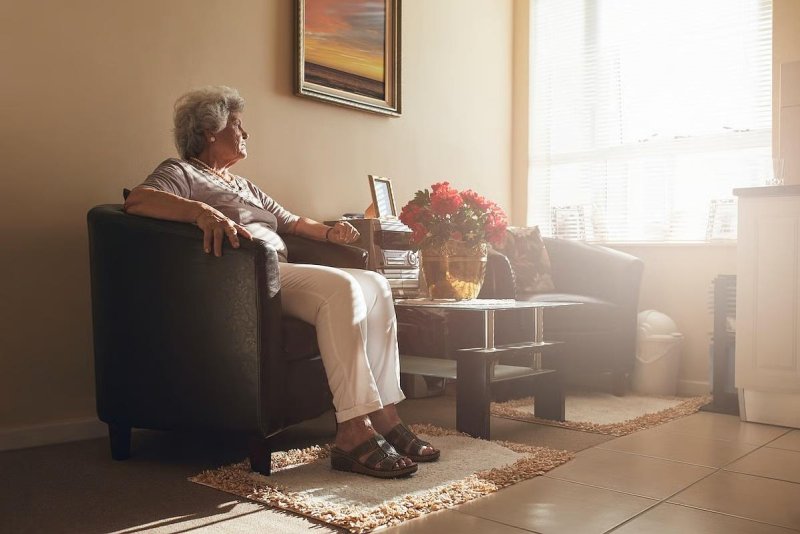Health
Standing Up More Often Linked to Improved Heart Health in Seniors

A recent study highlights a simple method for older women to enhance their heart health: standing up more frequently. Research published in the journal Circulation reveals that women who increased their standing time from a seated position experienced significant improvements in blood pressure over three months, even without increasing their overall levels of intense exercise.
Lead researcher Sheri Hartman, a professor of public health and human longevity science at the University of California-San Diego, explained that the findings indicate that while reducing sitting time is beneficial, interrupting prolonged periods of sitting with brief standing breaks can also support healthy blood pressure levels.
Study Overview and Methodology
The study involved over 400 postmenopausal women, aged an average of nearly 68 years, who were classified as overweight or obese. Participants were randomly divided into three groups. One group was instructed to reduce their sitting time, another group was advised to increase their instances of rising from a seated position, while a control group maintained their usual routines. All participants received coaching on healthy aging strategies.
Results showed compliance among the women, with the “sit less” group reducing their sitting time by an average of 58 minutes per day, while those in the “stand more” group increased their stand-to-sit transitions by 26 times daily compared to the control group.
Health Outcomes from Increased Standing
After three months, the “stand more” group demonstrated notable decreases in both systolic and diastolic blood pressure. Specifically, systolic blood pressure, which measures pressure during heartbeats, declined by more than 3 mm/Hg, while diastolic blood pressure, the pressure in the arteries between heartbeats, fell by over 2 mm/Hg. Although these changes were not statistically significant, the researchers argue they suggest a positive influence of standing more often on blood pressure.
In contrast, the “sit less” group showed no significant changes in blood pressure, and neither group experienced improvements in blood sugar levels.
Researcher Andrea LaCroix, also a professor at UC-San Diego, expressed enthusiasm for the study’s outcomes, emphasizing that participants were able to set their own goals and effectively alter their sitting behaviors. She noted, “With a little coaching, we can teach ourselves to sit less, and it makes a tangible difference to our short- and long-term health.”
Looking forward, researchers plan to conduct a follow-up study that will extend beyond three months, as substantial improvements in heart health may take more time to manifest. LaCroix added, “Adapting real-world interventions that are easy and realistic, such as standing up from sitting 25 extra times per day, may be achievable for many individuals.”
For further insights on improving heart health through simple lifestyle changes, resources from Harvard Medical School provide additional guidance.
This study underscores the importance of small adjustments in daily habits, particularly for older women seeking to enhance their overall health and well-being.
-

 Technology4 months ago
Technology4 months agoDiscover the Top 10 Calorie Counting Apps of 2025
-

 Health2 months ago
Health2 months agoBella Hadid Shares Health Update After Treatment for Lyme Disease
-

 Health3 months ago
Health3 months agoErin Bates Shares Recovery Update Following Sepsis Complications
-

 Technology3 weeks ago
Technology3 weeks agoDiscover 2025’s Top GPUs for Exceptional 4K Gaming Performance
-

 Technology2 months ago
Technology2 months agoElectric Moto Influencer Surronster Arrested in Tijuana
-

 Technology4 months ago
Technology4 months agoDiscover How to Reverse Image Search Using ChatGPT Effortlessly
-

 Technology4 months ago
Technology4 months agoMeta Initiates $60B AI Data Center Expansion, Starting in Ohio
-

 Technology4 months ago
Technology4 months agoRecovering a Suspended TikTok Account: A Step-by-Step Guide
-

 Health4 months ago
Health4 months agoTested: Rab Firewall Mountain Jacket Survives Harsh Conditions
-

 Lifestyle4 months ago
Lifestyle4 months agoBelton Family Reunites After Daughter Survives Hill Country Floods
-

 Technology3 months ago
Technology3 months agoUncovering the Top Five Most Challenging Motorcycles to Ride
-

 Technology4 weeks ago
Technology4 weeks agoDiscover the Best Wireless Earbuds for Every Lifestyle









